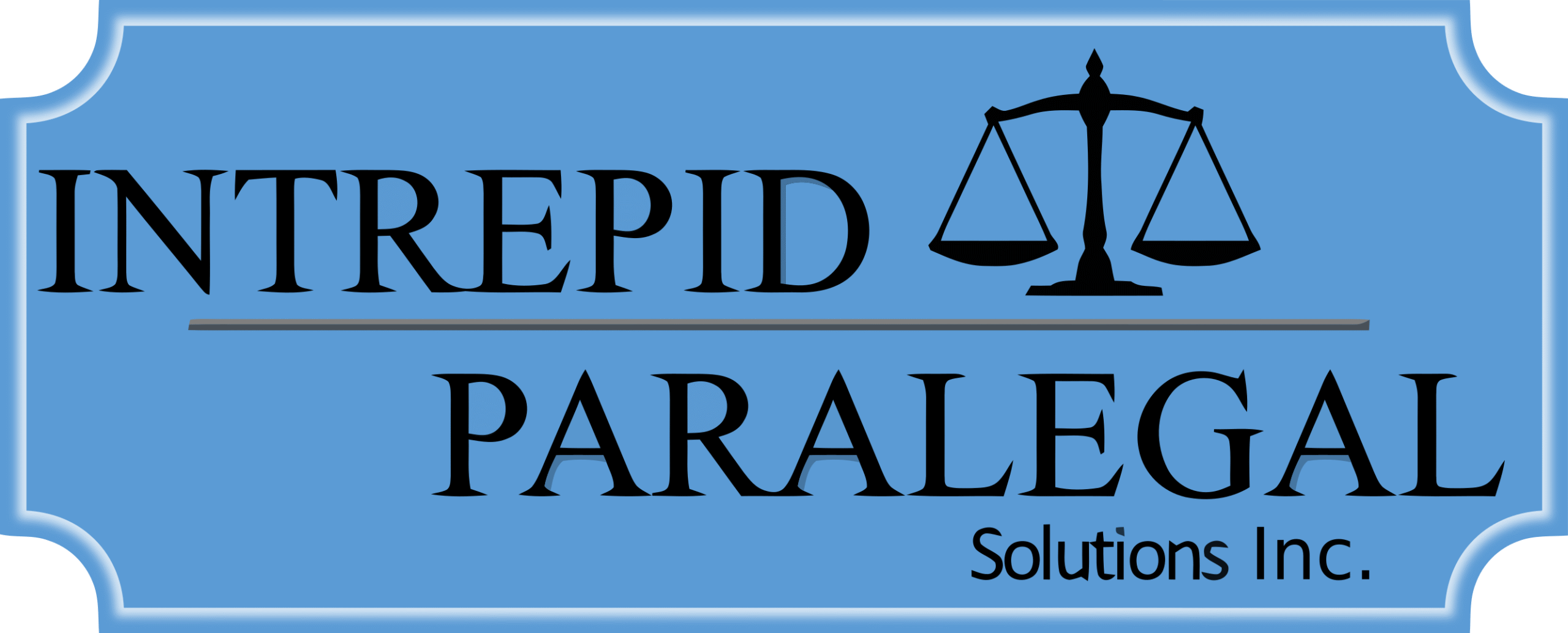The legal profession is evolving, and paralegals are at the heart of this transformation. Across the United States, advocacy efforts are gaining momentum to expand the scope of paralegal practice, empowering these skilled professionals to take on broader responsibilities. At Intrepid Paralegal Solutions, we see this shift as an opportunity to enhance the legal system, improve access to justice, and elevate the role of paralegals within the legal profession. In this blog, we explore the nationwide push to broaden paralegal roles, highlight ongoing advocacy efforts, and discuss how these changes can shape the future of legal practice.
The Need for Expanded Paralegal Roles
The legal system faces challenges in delivering timely and affordable services, especially for underserved populations. Expanding paralegal responsibilities can help bridge this gap by enabling them to handle specific legal tasks under defined regulations.
Why expanded roles matter:
- Access to Justice: Expanding paralegal roles enables low-income and rural communities to receive essential legal support without the high costs of hiring an attorney for routine tasks.
- Efficiency for Law Firms: Attorneys can focus on complex, high-stakes cases while delegating administrative and procedural tasks to skilled paralegals, improving overall team efficiency.
- Cost-Effectiveness for Clients: Clients benefit from reduced legal fees as paralegals handle tasks like document preparation, legal research, and limited representation, providing affordable and reliable legal assistance.
These changes are not only practical but necessary for modernizing the legal profession and making justice more accessible to all.
Advocacy Efforts for Paralegal Empowerment
Advocacy groups and legal organizations are actively working to redefine paralegal roles. These efforts include lobbying for legislative changes, developing training programs, and raising awareness about the benefits of expanded paralegal duties.
Key initiatives include:
- Limited License Legal Technician (LLLT) Programs: Washington State pioneered the LLLT model, allowing qualified paralegals to provide limited legal services without attorney supervision in areas like family law. This program serves as a blueprint for similar efforts nationwide.
- State Bar Associations: Many bar associations are exploring pilot programs to test expanded paralegal roles, focusing on tasks like drafting legal documents, filing court forms, and representing clients in administrative hearings.
- Educational Advocacy: Organizations like the National Association of Legal Assistants (NALA) and the National Federation of Paralegal Associations (NFPA) are promoting specialized certifications to prepare paralegals for expanded responsibilities.
How Paralegals Can Prepare for Expanded Roles
As the push for broader responsibilities gains traction, paralegals must equip themselves with the skills and credentials needed to excel in these new roles. Preparation involves a combination of education, certification, and practical experience.
- Pursue Specialized Certifications: Certifications tailored to expanded paralegal duties, such as family law or e-discovery, provide the foundational knowledge required for advanced tasks. Programs like NALA’s Certified Paralegal designation or the NFPA’s Registered Paralegal credential signal expertise and readiness to take on new responsibilities.
- Engage in Continuous Learning: Legal regulations evolve constantly. Paralegals should stay informed by attending workshops, webinars, and professional development courses. Topics such as legal ethics, client communication, and jurisdiction-specific rules are particularly valuable for those preparing for expanded roles.
- Gain Practical Experience: Volunteering for pro bono cases or participating in legal aid initiatives allows paralegals to gain hands-on experience while addressing community needs. These opportunities build skills and credibility, preparing paralegals for more challenging responsibilities.
By embracing these strategies, paralegals can position themselves as leaders in this new era of legal practice.
Challenges to Expanding Paralegal Roles
While the benefits of expanded paralegal roles are clear, implementing these changes is not without obstacles. Resistance from traditional legal practitioners, regulatory complexities, and concerns about maintaining ethical standards can slow progress.
Key challenges include:
- Attorney Resistance: Some attorneys worry that expanded paralegal roles could dilute the quality of legal services or encroach on tasks traditionally reserved for licensed professionals.
- Regulatory Hurdles: Each state has its own legal framework, creating inconsistencies in how paralegals can operate across jurisdictions. Developing standardized guidelines will be critical for nationwide adoption.
- Ethical Considerations: Ensuring that paralegals adhere to strict ethical standards, such as confidentiality and conflict of interest rules, is vital to maintaining trust and professionalism.
Overcoming these challenges requires collaboration between paralegals, attorneys, and regulatory bodies, along with a shared commitment to modernizing the legal profession.
The Role of Technology in Expanding Paralegal Practice
Technology plays a pivotal role in supporting expanded paralegal responsibilities. From streamlining workflows to ensuring compliance, innovative tools empower paralegals to manage advanced tasks efficiently.
Key technological advancements include:
- Case Management Software: Tools like Clio and MyCase streamline paralegal workflows by providing an organized platform to track deadlines, manage client communications, and maintain case files. These tools ensure that no important dates or tasks are overlooked, enhancing efficiency and accountability.
- Document Automation: Platforms like HotDocs revolutionize document preparation by automating repetitive processes. Paralegals can create accurate and professional legal documents quickly, reducing errors and freeing up time for more complex tasks.
- E-Discovery Tools: AI-powered e-discovery platforms enable paralegals to analyze large volumes of data with speed and precision. These tools are especially valuable in complex litigation cases, allowing paralegals to identify relevant information and provide attorneys with critical insights.
At Intrepid Paralegal Solutions, we integrate these technologies into our workflows, enabling our team to provide unparalleled support to clients while maintaining the highest standards of quality and compliance.
The Ethical Imperative for Expanding Paralegal Roles
Ethics remain central to the conversation around expanded paralegal responsibilities. As paralegals take on greater duties, adherence to ethical principles such as confidentiality, transparency, and accountability becomes even more critical.
Ethical guidelines for expanded roles include:
- Maintaining Client Confidentiality: Paralegals play a critical role in safeguarding sensitive client information. Whether managing physical documents or digital files, they must ensure secure handling practices, such as using encryption for electronic communications and restricting access to confidential materials. These measures protect against data breaches and maintain the trust that clients place in legal teams.
- Upholding Transparency: Clear communication with clients is essential. Paralegals must outline the scope of their services, explaining their responsibilities and limitations within the legal framework. This transparency ensures clients have realistic expectations and fosters trust.
- Fostering Accountability: Paralegals should regularly review ethical standards and stay informed about evolving regulations. Seeking guidance from supervising attorneys and participating in professional development opportunities reinforces accountability and helps maintain high ethical and professional standards. This commitment supports the integrity of the legal process.
By prioritizing ethics, paralegals can build trust and credibility as they embrace new responsibilities.The movement to expand paralegal roles represents a pivotal moment for the legal profession. Advocacy efforts are not just about redefining paralegal duties—they aim to create a more accessible, efficient, and equitable legal system. At Intrepid Paralegal Solutions, we are committed to this vision. Guided by our values of integrity, innovation, and the pursuit of excellence, we champion the empowerment of paralegals and work tirelessly to support their growth. As the scope of paralegal practice continues to evolve, we remain dedicated to providing the highest quality of service to clients while advancing the profession as a whole. Together, we can shape a future where paralegals play an even more vital role in delivering justice.

